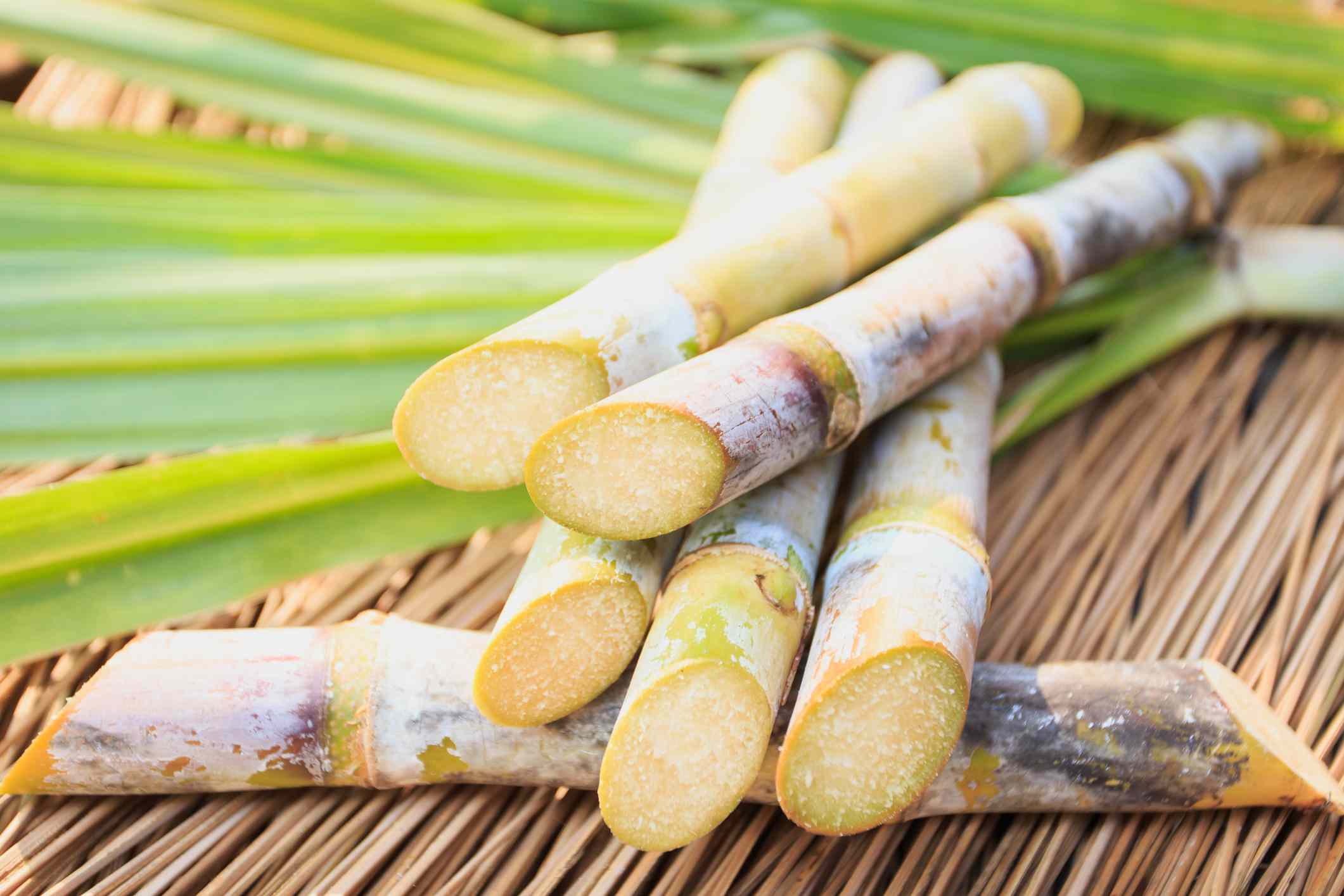An In-depth Introduction of the Health And Wellness and Economic Effects of Cane Sugar Processing on Regional Neighborhoods
Walking stick sugar processing plays a crucial role in forming the economic landscape of neighborhood areas, offering job opportunity and promoting ancillary industries. Nonetheless, the wellness implications linked with high sugar intake can not be ignored, as they contribute to increasing prices of excessive weight and diabetes. This nuanced dynamic invites a crucial examination of exactly how areas can maximize financial gains while dealing with the pressing health and wellness obstacles they face. The exploration of lasting practices and educational initiatives might just hold the secret to fixing up these conflicting rate of interests. What approaches might areas implement to accomplish this balance?
Financial Benefits of Walking Cane Sugar Handling
Cane sugar handling supplies substantial financial advantages that extend past the immediate farming industry. The cultivation and handling of sugarcane produce various work possibilities, from farming to production and distribution. This employment generation not just supports neighborhood economic climates yet also fosters neighborhood growth by offering secure revenue sources for households.
In addition, the sugar sector boosts ancillary companies, including transport, tools supply, and packaging solutions (Cane Sugar Processing). As these markets grow, they contribute to an extra durable financial framework, boosting overall community durability. The export possibility of processed cane sugar additionally amplifies economic advantages, positioning areas as affordable gamers in global markets
Investment in modern processing facilities can cause raised performance and performance, therefore reducing waste and optimizing resource usage. This shift not just benefits the local economic climate yet also sustains sustainability initiatives by lessening ecological impacts.
Furthermore, the profits generated from walking stick sugar processing can be reinvested in neighborhood facilities, education, and medical care, advertising holistic community growth. In general, the economic benefits of walking stick sugar handling are multifaceted, offering a structure for sustaining success in farming areas.
Health Threats Connected With Sugar Intake
Too much sugar consumption postures substantial health and wellness dangers that call for significant interest. High consumption of added sugars, especially from refined beverages and foods, has been linked to various health issues. One of one of the most pressing worries is excessive weight, as sugary diets add to a raised calorie intake without providing vital nutrients. This excess can cause metabolic conditions, including type 2 diabetes mellitus, which has actually become increasingly widespread in both adults and youngsters - Cane Sugar Processing.
Moreover, high sugar usage is associated with heart disease. Raised blood glucose degrees can result in insulin resistance, a precursor to various heart-related problems. In addition, sugar can have detrimental results on oral health and wellness, causing tooth cavities and gum disease, as bacteria in the mouth prosper on sugar, producing acids that deteriorate tooth enamel.
In addition, emerging research study suggests a prospective link in between high sugar consumption and psychological health conditions, such as depression and anxiety. As neighborhoods grapple with these wellness threats, it becomes vital to advertise understanding and motivate much healthier dietary selections. Dealing with sugar usage is important not just for individual wellness however additionally for the general health of neighborhood neighborhoods, emphasizing the need for thorough public health and wellness techniques.
Ecological Effects of Sugar Manufacturing
Frequently neglected in conversations regarding sugar's ramifications is the substantial ecological effect of sugar production. The farming of sugarcane frequently necessitates considerable land use, bring about deforestation, loss of biodiversity, and disruption of regional ecosystems. The conversion of forests and wetlands right into sugar plantations can lead to habitat devastation, harmful numerous types and changing eco-friendly equilibrium.
Additionally, sugar manufacturing is resource-intensive, consuming substantial quantities of water for watering. This can lead to depletion of regional water resources, adversely affecting both farming practices and area accessibility to tidy water. Furthermore, the use of chemical plant foods and pesticides in sugarcane farming can add to dirt destruction and water air pollution, as runoff from these chemicals goes into nearby rivers and lakes, influencing water life and human health.
The environmental impact reaches the handling stage, where power intake and waste generation further exacerbate environmental worries. Air contamination from melting sugarcane areas, along with greenhouse gas discharges, add to climate adjustment. Therefore, the ecological ramifications of sugar production warrant major consideration, prompting stakeholders to embrace even more lasting practices to alleviate these damaging effects on regional ecological communities and communities.
Job Production and Community Growth
The ecological obstacles postured by sugar production are frequently reversed by its capacity for economic benefits, specifically in job production and community growth. The walking cane sugar sector functions as a significant source of work in lots of rural areas, giving work throughout numerous skill levels, from agricultural labor to handling and distribution roles. This work not just supports private households but additionally adds to the general financial vitality of regional areas.
In addition, the facility of sugar processing centers visit our website boosts supplementary organizations, such as transport services, tools supply, and maintenance providers. As these organizations prosper, they produce added work and bolster local economies. The profits generated from the sugar market likewise results in boosted tax obligation revenues, which can be reinvested right into social work such as health care, education and learning, and facilities development.
Moreover, the sugar market typically takes part in neighborhood advancement initiatives, such as supporting neighborhood schools and health and wellness programs, thereby improving the lifestyle for homeowners. By promoting solid community ties and promoting economic growth, the cane sugar handling field plays an important role in uplifting regional populaces, making it an essential part of lasting growth techniques in sugar-producing regions.
Harmonizing Wellness and Economic Growth
In navigating the complexities of walking cane sugar processing, a critical challenge hinges on stabilizing wellness considerations with economic development. The sugar market dramatically adds to neighborhood economies by producing tasks, stimulating associated sectors, and enhancing tax revenues. Nonetheless, the wellness ramifications related to extreme sugar usage can lead to chronic diseases such as excessive weight, diabetes mellitus, and cardio issues, which can concern public health and wellness systems and lessen labor force efficiency.

Furthermore, regulatory frameworks can play a critical role in guiding market practices towards more sustainable and health-conscious approaches. By cultivating partnership in between federal government bodies, health and wellness companies, and the sugar industry, neighborhoods can navigate the duality of health and financial growth, guaranteeing that the advantages of cane sugar processing are equitably shared while prioritizing public wellness.
Verdict
Finally, the processing of walking stick sugar offers both significant economic benefits and noteworthy health and wellness threats for local neighborhoods. While it promotes job creation and promotes local advancement, the involved health and wellness worries, specifically pertaining to excessive weight and diabetes mellitus, require a mindful harmonizing act. By promoting liable intake and investing in neighborhood education and sustainable techniques, it is possible to make best use of her comment is here financial advantages while decreasing adverse health and wellness impacts, therefore making certain a healthier future for neighborhood populations.
Additionally, sugar can have damaging results on dental health, resulting find more in cavities and gum tissue illness, as germs in the mouth thrive on sugar, producing acids that wear down tooth enamel.
Resolving sugar intake is vital not only for specific wellness but also for the general health of regional neighborhoods, highlighting the demand for thorough public health and wellness approaches.
Regularly neglected in discussions concerning sugar's ramifications is the substantial environmental effect of sugar manufacturing. The wellness effects connected with excessive sugar consumption can lead to persistent diseases such as obesity, diabetes, and cardio problems, which can concern public health and wellness systems and diminish labor force efficiency.
